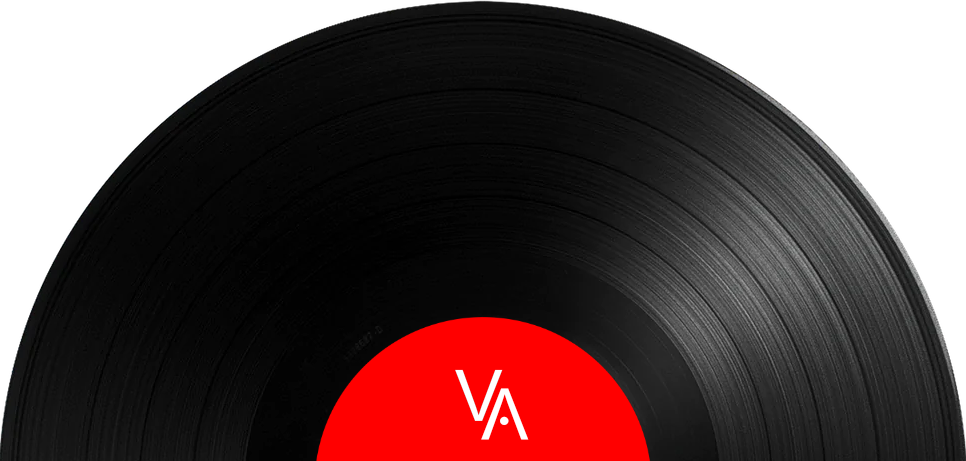
The Chess Box is a definitive 5-LP compilation of the music of Howlin' Wolf, one of a series of career-spanning blues box sets issued by MCA/Chess in the late 1980s and early 1990s. The other sets spotlighted Bo Diddley, Chuck Berry, Muddy Waters, Willie Dixon and Etta James. I've also got the Muddy Waters. I had the Chuck Berry and Bo Diddley sets but sold them.
Earlier this year this set was inducted into the Blues Foundation’s Blues Hall of Fame. It's the second Chess Box to receive this honour, following the earlier induction of the Muddy Waters Chess Box.
Released in 1991, this box highlights 71 of Howlin' Wolf's songs recorded between 1951-73, including collaborations with Willie Dixon, Buddy Guy and Hubert Sumlin. It's a great box of music, and it's probably all the Howlin' Wolf you will ever need. It kicks things off with the 1951 recording of Moanin’ At Midnight, and from there moves chronologically through the years.
Nobody else sounded like Howlin' Wolf. Raw. Gritty. Primal. It was a sound not suited to just everybody's ears, although to me it sounds wonderfully powerful. The Chess Box encompasses Wolf's entire career and even contains some interesting spoken word snippets, one of them recalling how angry he once was that he couldn't seem to shake the nickname Howlin’ Wolf (his real name is Chester Burnett, for those who don't already know).
Wolf is one of the best-known Chicago blues artists. Over the decades several of his songs have become - thanks mostly to countless re-interpretations by other artists - both blues and blues-rock standards. Most of them are represented here.
Wolf was born in 1910. He grew into a large young man - 6-foot-three, 300 pounds - and his square-ish, big-boned physique earned him the nicknames Big Foot Chester and Bull Cow. The name Howlin' Wolf is said to have been bestowed upon him by his grandfather, who would scold him for killing his grandmother's chicks by holding them too tight. Seems the young Wolf didn't know his own strength! The old man told him that wolves in the area would come and get him if he didn't start treating the chicks better.
His mother one day kicked him out of the house for some unknown reason and he moved in with his great-uncle, Will Young, who had a large household and treated him badly. While living with the Youngs, Wolf killed one of his uncle's hogs in a rage after the hog caused him to ruin the dress clothes he was wearing. Young whipped Wolf while chasing after him on a mule.
Wolf ran away from his uncle's house and, so he is said to have claimed, walked 85 miles barefoot to where his father lived. Things were better for him from then on.
Wolf became friends in the 1930s with Charley Patton, at the time the most popular bluesman in the Mississippi Delta. The friendship blossomed and before long Patton was teaching Wolf the guitar.
Country singer Jimmie Rodgers was also an influence on Wolf, who tried to emulate Rodgers's blue yodel but could only muster a growl. "I couldn't do no yodelin'," he said, "so I turned to howlin'. And it's done me just fine".
In 1951, Ike Turner, then a freelance talent scout, heard Howlin' Wolf and took him to Memphis to record several songs for Sam Phillips, who loved what he heard and later recalled that upon hearing Howlin' Wolf he said, "This is where the soul of man never dies.'"
The Wolf soon became a local celebrity and began working with the first of several bands. He was able to attract some of the best musicians around because of his policy of paying his musicians well and on time - unlike many of his contemporaries who also led bands.
In the 1950s, Howlin' Wolf had five songs on the Billboard national R&B charts - Moanin' At Midnight, How Many More Years, Who Will Be Next, Smokestack Lightning and I Asked for Water (She Gave Me Gasoline). His first full-length LP, Moanin' in the Moonlight, was released in 1959 and was basically a compilation of songs that had previously been released as singles.
During the blues revival in the 1950s and early 1960s, Wolf's music was discovered and interpreted by up-and-coming British blues bands, most notably the Rolling Stones, whose recording of Little Red Rooster reached number one in the UK in 1964. Wolf toured Europe that year as part of the American Folk Blues Festival and, in 1965, appeared on the British TV program, Shindig!
At the peak of his success he returned home to visit his mother, but she rebuffed him and refused to take the money he offered her saying it was earned from playing the devil's music.
Wolf's health began to decline in the late 1960s. He had several heart attacks and suffered bruised kidneys in a car accident, in 1970. In January, 1976, he entered the Veterans Administration Hospital in Hines, Illinois, for kidney surgery, but died from resulting complications a few days later at the age of 65.
This box set is an excellent representation of Howlin' Wolf's long and distinguished career. It sounds really good, even the first couple of sides representing his earliest recordings. It's not an easy box to find these days and usually commands prices in the $300 (or higher) range in near mint condition. But if I didn't already own it I'd snag it if I saw it somewhere. It's pretty much essential to the collection of any serious fan of the blues.
The Chess Box is a definitive 5-LP compilation of the music of Howlin' Wolf, one of a series of career-spanning blues box sets issued by MCA/Chess in the late 1980s and early 1990s. The other sets spotlighted Bo Diddley, Chuck Berry, Muddy Waters, Willie Dixon and Etta James. I've also got the Muddy Waters. I had the Chuck Berry and Bo Diddley sets but sold them.
Earlier this year this set was inducted into the Blues Foundation’s Blues Hall of Fame. It's the second Chess Box to receive this honour, following the earlier induction of the Muddy Waters Chess Box.
Released in 1991, this box highlights 71 of Howlin' Wolf's songs recorded between 1951-73, including collaborations with Willie Dixon, Buddy Guy and Hubert Sumlin. It's a great box of music, and it's probably all the Howlin' Wolf you will ever need. It kicks things off with the 1951 recording of Moanin’ At Midnight, and from there moves chronologically through the years.
Nobody else sounded like Howlin' Wolf. Raw. Gritty. Primal. It was a sound not suited to just everybody's ears, although to me it sounds wonderfully powerful. The Chess Box encompasses Wolf's entire career and even contains some interesting spoken word snippets, one of them recalling how angry he once was that he couldn't seem to shake the nickname Howlin’ Wolf (his real name is Chester Burnett, for those who don't already know).
Wolf is one of the best-known Chicago blues artists. Over the decades several of his songs have become - thanks mostly to countless re-interpretations by other artists - both blues and blues-rock standards. Most of them are represented here.
Wolf was born in 1910. He grew into a large young man - 6-foot-three, 300 pounds - and his square-ish, big-boned physique earned him the nicknames Big Foot Chester and Bull Cow. The name Howlin' Wolf is said to have been bestowed upon him by his grandfather, who would scold him for killing his grandmother's chicks by holding them too tight. Seems the young Wolf didn't know his own strength! The old man told him that wolves in the area would come and get him if he didn't start treating the chicks better.
His mother one day kicked him out of the house for some unknown reason and he moved in with his great-uncle, Will Young, who had a large household and treated him badly. While living with the Youngs, Wolf killed one of his uncle's hogs in a rage after the hog caused him to ruin the dress clothes he was wearing. Young whipped Wolf while chasing after him on a mule.
Wolf ran away from his uncle's house and, so he is said to have claimed, walked 85 miles barefoot to where his father lived. Things were better for him from then on.
Wolf became friends in the 1930s with Charley Patton, at the time the most popular bluesman in the Mississippi Delta. The friendship blossomed and before long Patton was teaching Wolf the guitar.
Country singer Jimmie Rodgers was also an influence on Wolf, who tried to emulate Rodgers's blue yodel but could only muster a growl. "I couldn't do no yodelin'," he said, "so I turned to howlin'. And it's done me just fine".
In 1951, Ike Turner, then a freelance talent scout, heard Howlin' Wolf and took him to Memphis to record several songs for Sam Phillips, who loved what he heard and later recalled that upon hearing Howlin' Wolf he said, "This is where the soul of man never dies.'"
The Wolf soon became a local celebrity and began working with the first of several bands. He was able to attract some of the best musicians around because of his policy of paying his musicians well and on time - unlike many of his contemporaries who also led bands.
In the 1950s, Howlin' Wolf had five songs on the Billboard national R&B charts - Moanin' At Midnight, How Many More Years, Who Will Be Next, Smokestack Lightning and I Asked for Water (She Gave Me Gasoline). His first full-length LP, Moanin' in the Moonlight, was released in 1959 and was basically a compilation of songs that had previously been released as singles.
During the blues revival in the 1950s and early 1960s, Wolf's music was discovered and interpreted by up-and-coming British blues bands, most notably the Rolling Stones, whose recording of Little Red Rooster reached number one in the UK in 1964. Wolf toured Europe that year as part of the American Folk Blues Festival and, in 1965, appeared on the British TV program, Shindig!
At the peak of his success he returned home to visit his mother, but she rebuffed him and refused to take the money he offered her saying it was earned from playing the devil's music.
Wolf's health began to decline in the late 1960s. He had several heart attacks and suffered bruised kidneys in a car accident, in 1970. In January, 1976, he entered the Veterans Administration Hospital in Hines, Illinois, for kidney surgery, but died from resulting complications a few days later at the age of 65.
This box set is an excellent representation of Howlin' Wolf's long and distinguished career. It sounds really good, even the first couple of sides representing his earliest recordings. It's not an easy box to find these days and usually commands prices in the $300 (or higher) range in near mint condition. But if I didn't already own it I'd snag it if I saw it somewhere. It's pretty much essential to the collection of any serious fan of the blues.


